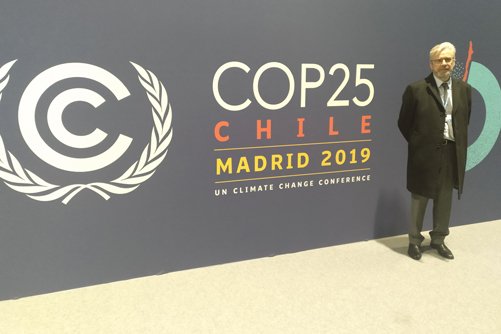At last month’s UN Climate Change Conference (Cop25) in Madrid, health co-ops called on governments to incorporate health into the climate agenda, as set out in the Paris Agreement.

The World Health Organisation (WHO) and the Global Climate and Health Alliance (GCHA) convened a one-day summit on climate and health,with 600 health professionals from over 50 countries, including Carlos Zarco, president of the International Health Co-operative Organisation (IHCO).
Under the Paris Agreement, the right to health is a core principle guiding action on climate change. But WHO says that while two-thirds of current Nationally Determined Contributions (NDCs) to the Paris Agreement mention health, this has not been backed up with the necessary level of implementation and support.
Maria Neira, director, Department of Environment, Climate Change and Health at WHO, said: “For the Paris Agreement to be effective to protect people’s health, governments need to prioritise building health system resilience to climate change, and a growing number of national governments are clearly headed in that direction.
“By systematically including health in Nationally Determined Contributions – as well as National Adaptation Plans, climate finance pledges, and other climate plans — the Paris Agreement could become the strongest international health agreement of the century.”
Climate change is already affecting the health of millions of people. WHO estimates that air pollution is responsible for seven million premature deaths annually, says WHO.
“With 1 billion members, co-operatives are a significant global network that plays a crucial role in tackling climate change. As values-based enterprises, they are a key player in the collective global response to climate risks in a wide range of economic sectors,” IHCO said in a statement.
It added that renewable energy co-ops help to tackle climate change while forestry and agricultural co-operatives are using sustainable management practices to keep carbon in the ground. The sector’s contribution includes co-operatively owned hospitals with environmental policies and strict commitments to the sustainable management of medical waste and retail co-operatives providing local goods at affordable prices, minimising the need for commercial transportation, said IHCO.